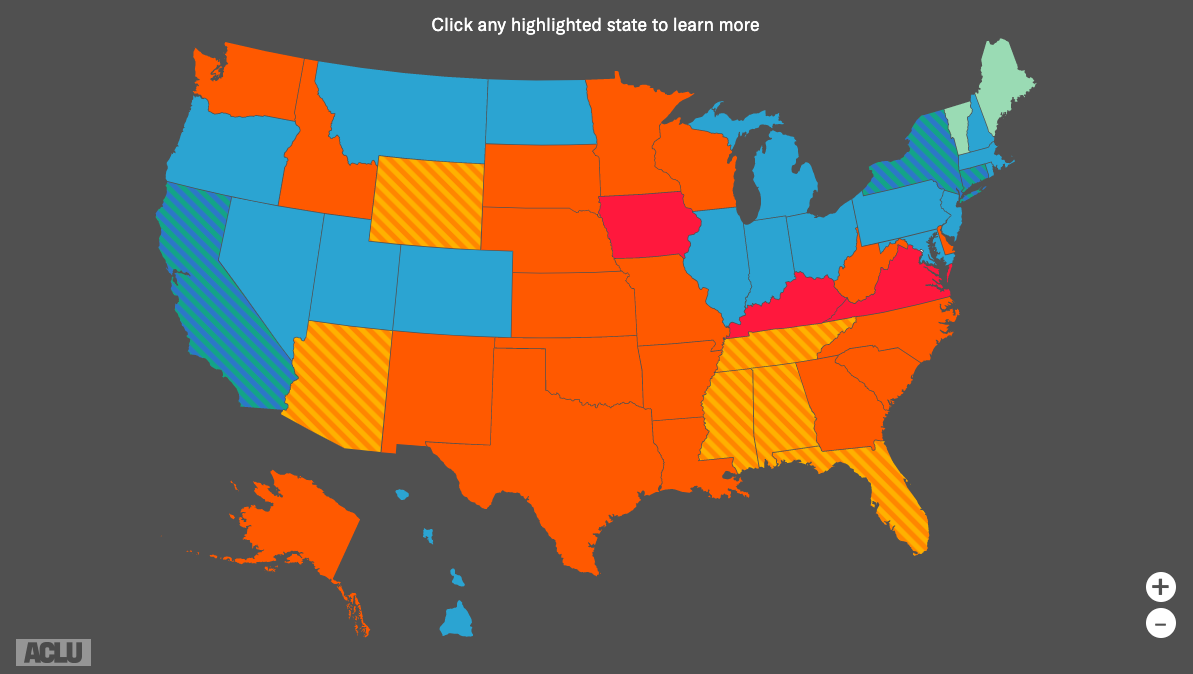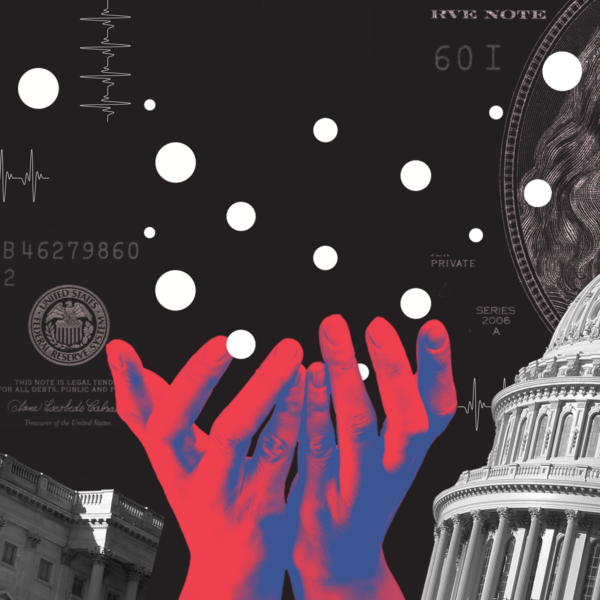Block the Vote: How Politicians are Trying to Block Voters from the Ballot Box
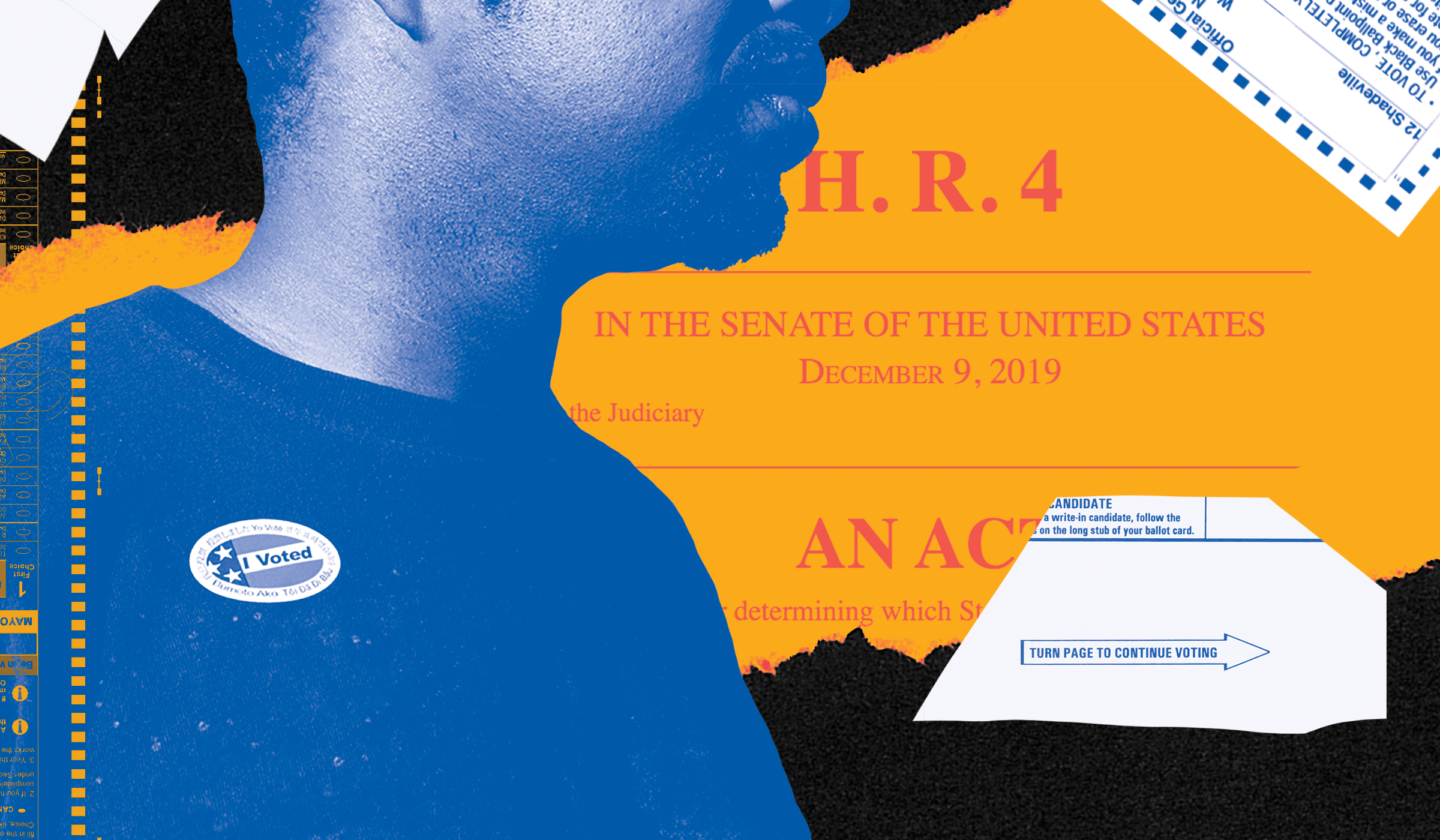
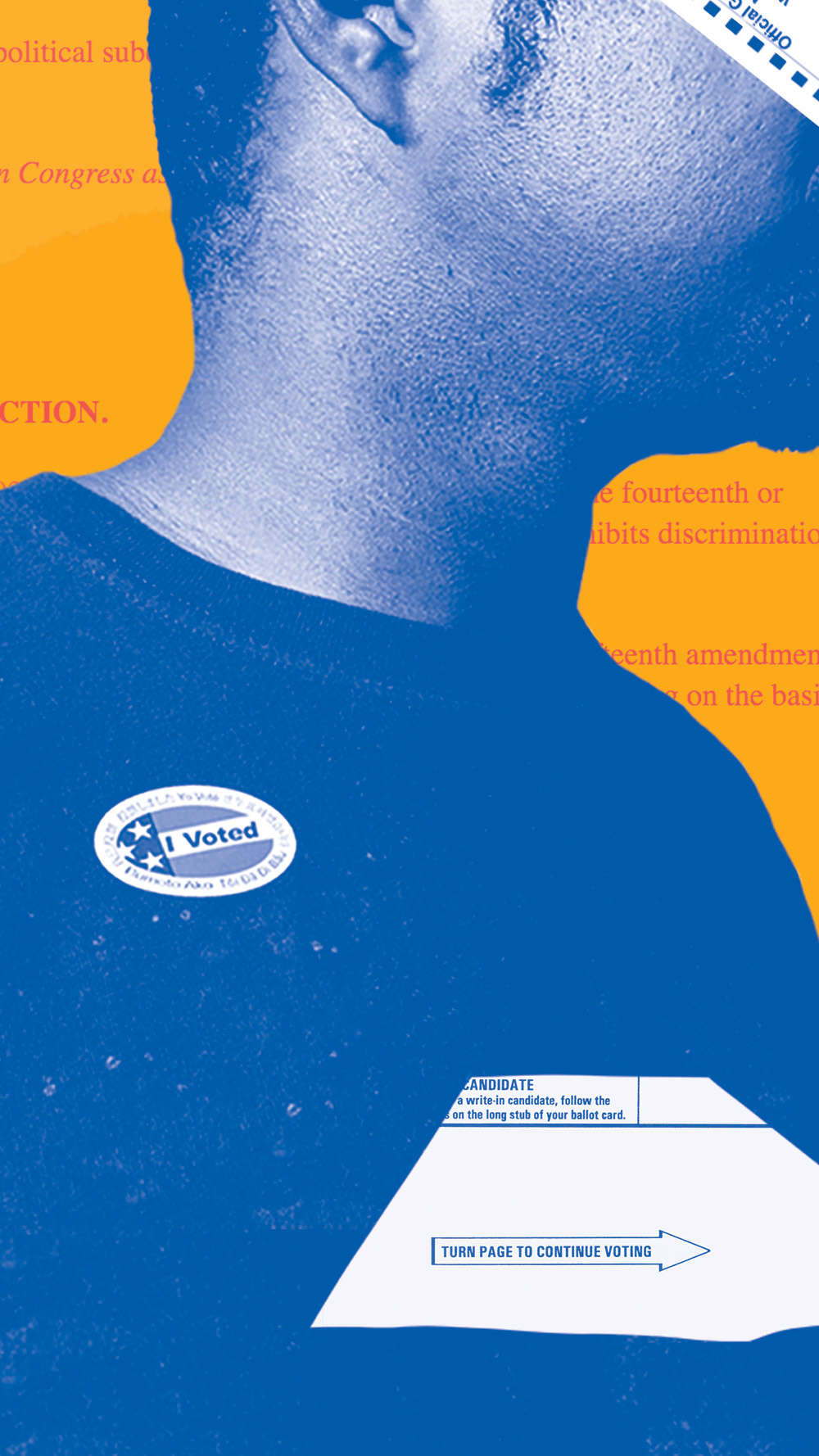
Last updated: August 18, 2021
Voting should be as easy and accessible as possible, and in many cases it is. But in recent years, more than 400 anti-voter bills have been introduced in 48 states. These bills erect unnecessary barriers for people to register to vote, vote by mail, or vote in person. The result is a severely compromised democracy that doesn’t reflect the will of the people. Our democracy works best when all eligible voters can participate and have their voices heard.
Suppression efforts range from the seemingly unobstructive, like strict voter ID laws and cuts to early voting, to mass purges of voter rolls and systemic disenfranchisement. These measures disproportionately impact people of color, students, the elderly, and people with disabilities. And long before election cycles even begin, legislators redraw district lines that determine the weight of your vote.
Below, we’ve listed some of the most rampant methods of voter suppression across the country — and the advocacy and litigation efforts aimed at protecting our fundamental right to vote.
Voter Registration Restrictions
Restricting the terms and requirements of registration is one of the most common forms of voter suppression. Restrictions can include requiring documents to prove citizenship or identification, onerous obstacles for voter registration drives, or limiting the window of time in which voters can register.
Politicians often use unfounded claims of voter fraud to try to justify registration restrictions. In 2011, Kansas Secretary of State Kris Kobach championed a law requiring Kansans to show “proof of citizenship” documents in order to register to vote, citing false claims of noncitizen voting. Most people don’t carry the required documents on hand — like a passport, or a birth certificate — and as a result, the law blocked the registrations of more than 30,000 Kansans. The ACLU sued and defeated the law in 2018. In 2020, the Supreme Court and a 10th Circuit Court of Appeals affirmed the ruling.
After a surge in registrations during the 2018 midterm election, Tennessee legislators imposed substantial requirements on groups that foster political participation via voter registration efforts and created criminal and civil penalties against those who fail to comply with these onerous requirements and turn in “incomplete” applications. The ACLU filed a federal lawsuit challenging the law and blocked it from going into effect in 2019.
Resources on voter registration requirements
Look up your state’s voter registration requirements | States with online voter registration
Criminalization of the Ballot Box
Some states are discouraging voter participation by imposing arbitrary requirements and harsh penalties on voters and poll workers who violate these rules. In Georgia, lawmakers have made it a crime to provide food and water to voters standing in line at the polls — lines that are notoriously long in Georgia, especially for communities of color. In Texas, people have been arrested and given outrageous sentences for what amount at most to innocent mistakes made during the voting process. ACLU clients Crystal Mason and Hervis Rogers are examples of this egregious treatment.
Because of racism in law enforcement and the broader criminal legal system, criminalization of the ballot box disproportionately impacts people of color, who are more likely to be penalized. This method of voter suppression aims to instill fear in communities of color and suppress their voices in the democratic process.
More on criminalization of the ballot box
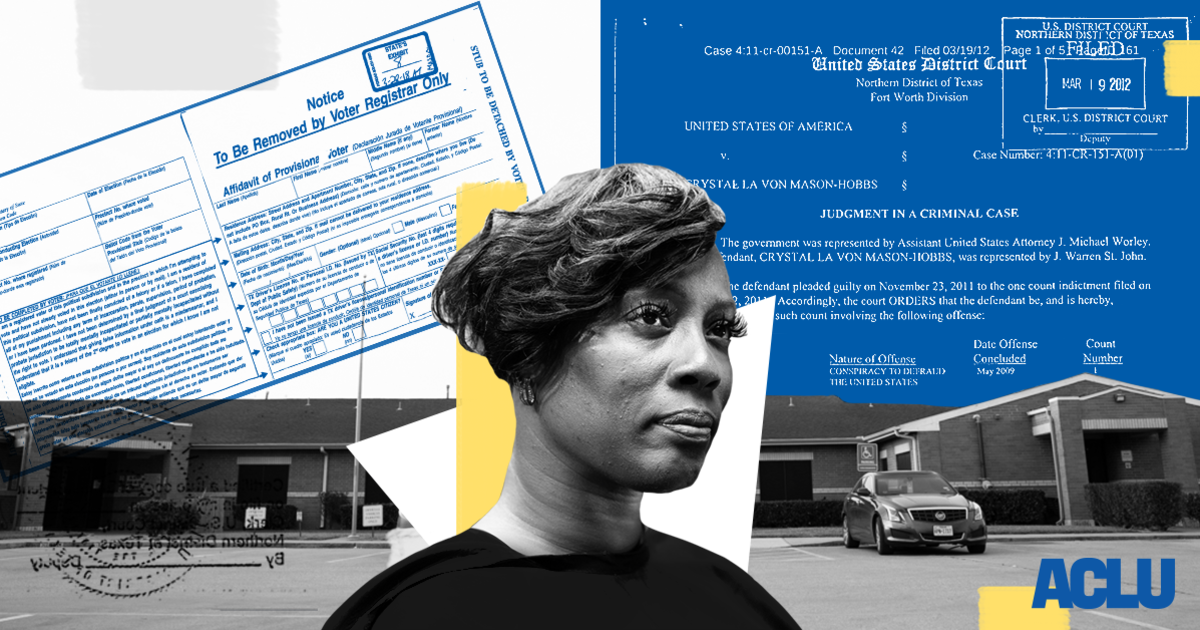
Crystal Mason Thought She Had The Right to Vote. Texas Sentenced Her to Five Years in Prison for Trying.
The case of a Texas mother is a window into how the myth of voter fraud is being weaponized to suppress the vote.
Source: American Civil Liberties Union
Felony Disenfranchisement
A felony conviction can come with drastic consequences, including the loss of your right to vote. Some states ban voting only during incarceration, or while on probation or parole. And other states and jurisdictions, like Maine, Vermont, and Washington, D.C., don’t disenfranchise people with felony convictions at all. The fact that these laws vary so dramatically only adds to the overall confusion that voters face, which is a form of voter suppression in itself.
Due to racial bias in the criminal justice system, felony disenfranchisement laws disproportionately affect Black and Brown people, who often face harsher sentences than white people for the same offenses. Many of these laws are rooted in the Jim Crow era, when legislators tried to block Black Americans’ newly won right to vote by enforcing poll taxes, literacy tests, and other barriers that were nearly impossible to meet. To this day, the states with the most extreme disenfranchisement laws also have long histories of suppressing the rights of Black people.
Felony disenfranchisement laws by state
Thirty-six states have identification requirements at the polls, including seven states with strict photo ID laws.
More on felony disenfranchisement
Podcast: Desmond Meade and Dale Ho on restoring the right to vote
Voter Purges
Cleaning up voter rolls can be a responsible part of election administration because many people move, die, or become ineligible to vote for other reasons. But sometimes, states use this process as a method of mass disenfranchisement, purging eligible voters from rolls for illegitimate reasons or based on inaccurate data, and often without adequate notice to the voters. A single purge can stop up to hundreds of thousands of people from voting. Often, voters only learn they’ve been erroneously purged when they show up at the polls on Election Day and it’s too late to correct the error.
Election administrators properly keep voter rolls up to date by filtering out voters who have changed their address, died, or otherwise become ineligible to vote. But states often conduct such purges using inaccurate data, flawed processes, and targeting certain voters such as those with felony convictions without enforcing federally-mandated safeguards to prevent purging voters who don’t even fall under the targeted group.
The ACLU has taken action against unlawful voter purges and laws that enable them. In 2019, we stopped Texas’ flawed, discriminatory voter purge list that targeted naturalized citizens. This year, we blocked an Indiana law that would have allowed county elections officials to kick voters off the rolls immediately without their explicit consent or notice, or an opportunity to correct the record.
More on voter purges
Report: Purges: A Growing Threat to the Right to Vote | Congressional Testimony by Sophia Lin Lakin, Deputy Director of the ACLU’s Voting Rights Project
Redistricting and Gerrymandering
Every 10 years, states redraw district lines based on population data gathered in the census. Legislators use these district lines to allocate representation in Congress and state legislatures. When redistricting is conducted properly, district lines are redrawn to reflect population changes and racial diversity. But too often, states use redistricting as a political tool to manipulate the outcome of elections. That’s called gerrymandering — a widespread, undemocratic practice that’s stifling the voices of millions of voters.
The Census Bureau released data from the 2020 Census in August 2021, triggering this once-in-a-decade line drawing process in most states. These new district lines will determine our political voice for the next decade.
The 2020 Census
In 2018, the Trump administration announced plans to add a citizenship question to the 2020 census, with the goal of suppressing participation of immigrant communities, stunting their growing political influence. The question would have resulted in an undercount that goes against the census’ very purpose — to count everybody in this country. Accurate population data is essential in apportioning representation and public funds. The ACLU sued the administration and successfully blocked the citizenship question before the census was conducted.
The Trump Administration's Census Cover-up

Voter ID Laws
Thirty-six states have identification requirements at the polls. Seven states have strict photo ID laws, under which voters must present one of a limited set of forms of government-issued photo ID in order to cast a regular ballot — no exceptions. These strict ID laws are part of an ongoing strategy to suppress the vote.
Over 21 million U.S. citizens do not have qualifying government-issued photo identification, and these individuals are disproportionately voters of color. That’s because ID cards aren’t always accessible for everyone. The ID itself can be costly, and even when IDs are free, applicants must incur other expenses to obtain the underlying documents that are needed to get an ID. This can be a significant burden on people in lower-income communities. Further, the travel required to obtain an ID is an obstacle for people with disabilities, the elderly, and people living in rural areas.
Voter ID Restrictions Imposed Since 2010
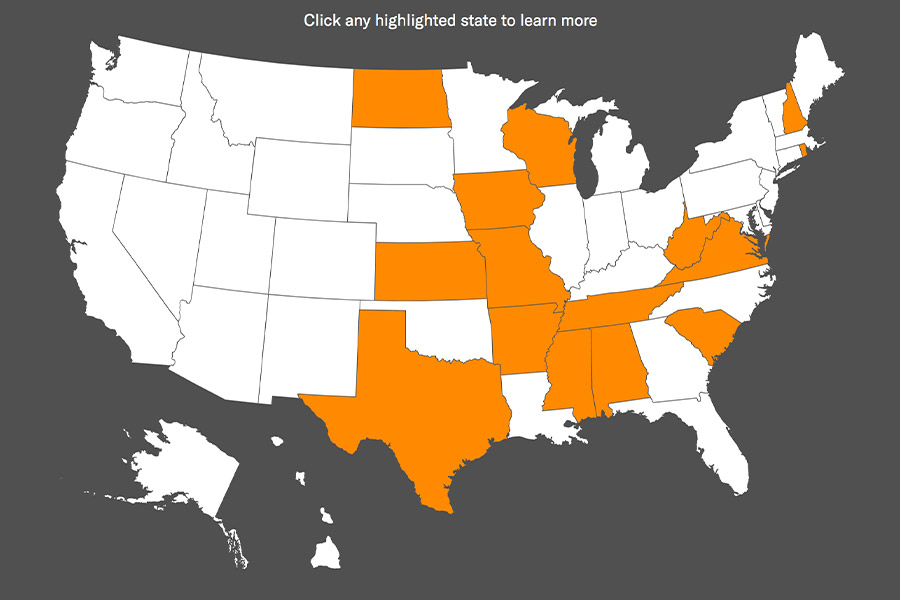
For more information on each highlighted state, click image for full display.
Map last updated February 2020.
Resources on voter ID laws
Look up your state’s voter ID laws
Who's Affected By Voter Suppression?
The short answer is all of us. Our democracy is debased when the vote is not accessible for all. But the fact is that some groups are disproportionately affected by voter suppression tactics, including people of color, young people, the elderly, and people with disabilities. The proof is in the numbers.
- Across the country, 1 in 16 Black Americans cannot vote due to disenfranchisement laws.
- Counties with larger minority populations have fewer polling sites and poll workers per voter.
- In 2018, Latinx and Black Americans were twice as likely as whites to be unable to get off work while polls were open.
- 25 percent of voting-age Black Americans do not have a government-issued photo ID.
- Geographic isolation is a major barrier to Native American voters due to the inaccessibility of nearby polling locations in many reservations. In South Dakota, 32 percent of Native voters cite travel distance as a factor in deciding whether to vote.
- More than one-sixth (18 percent) of voters with disabilities reported difficulties voting in person in 2020.
Nearly two-thirds of polling places had at least one impediment for people with disabilities.
How To Protect Your Vote
The right to vote is the most fundamental constitutional right for good reason: democracy cannot exist without the electoral participation of citizens. We vote because it’s we, the people, who are supposed to shape our government. Not the other way around.
President Biden and states can enact measures to encourage rather than suppress voting. Automatic, online, and same-day voter registration encourage participation and reduce chances of error. Early voting helps people with travel or accessibility concerns participate. And states must enforce the protections of the Voting Rights Act.
At an individual level, the best way to fight voter suppression is to know your rights — and vote.
- Tell Congress to pass the VRAA, which would reinstate critical protections against voter suppression left behind after the Supreme Court gutted the Voting Rights Act in 2013. This is even more urgent in the wake of the Supreme Court’s recent decision in Brnovich v. Democratic National Committee, which significantly undercut the protections of another vital provision of the Voting Rights Act.
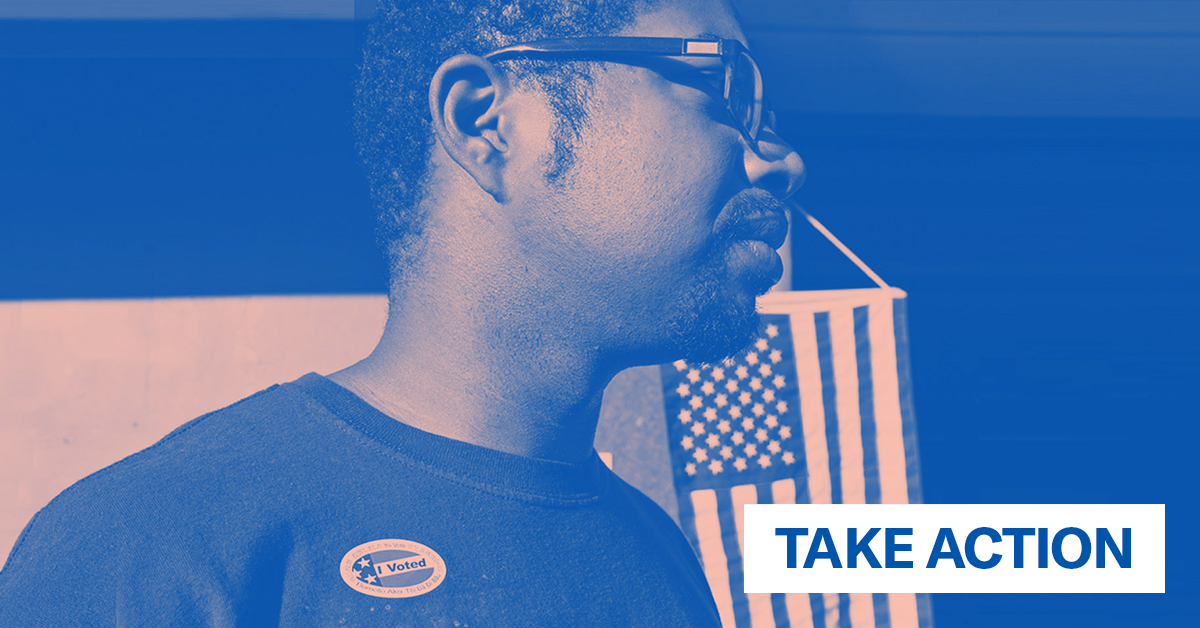
Congress: Protect Our Voting Rights
We must pass the John Lewis Voting Rights Advancement Act to defend our democratic right. The price of inaction is high.
Source: American Civil Liberties Union
- Know Your Rights before you get to the polling booth. Read and share our guide on what to do if you face registration issues, need disability or language accommodations, or come across someone who’s interfering with your right to vote. Share the guide on Facebook and Twitter to spread the word.
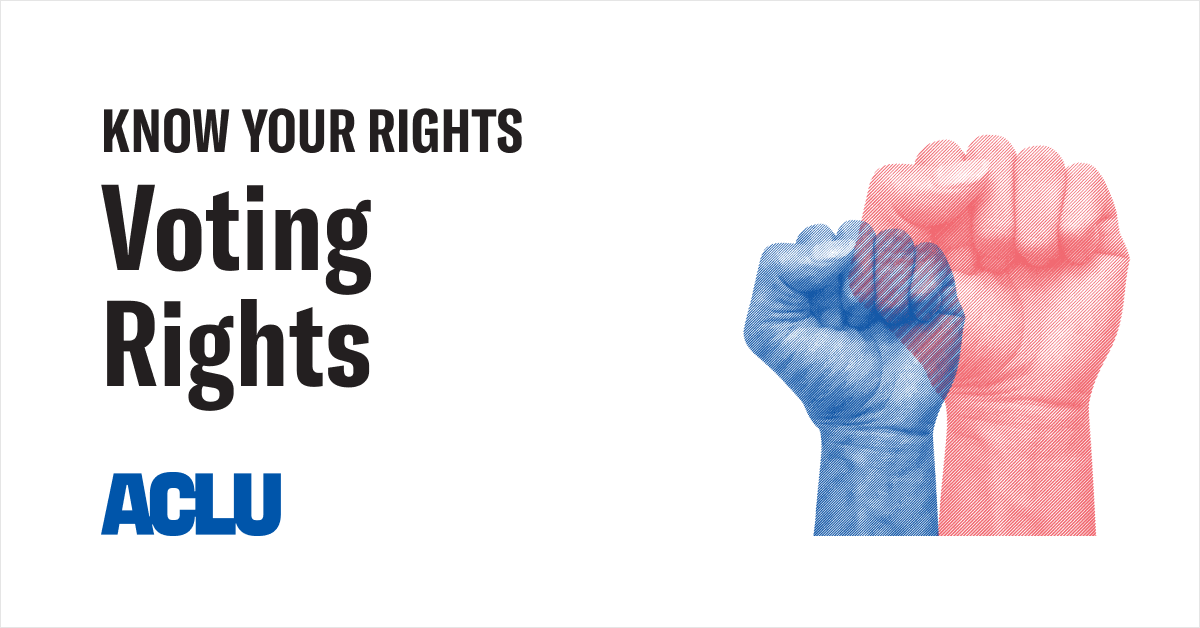
Know Your Rights | Voting Rights
Learn more about how to exercise your voting rights, resist voter intimidation efforts, and access disability-related accommodations and language assistance at the polls. For help at the polls, call the non-partisan Election Protection Hotline at 1-866-OUR-VOTE.
Source: American Civil Liberties Union
